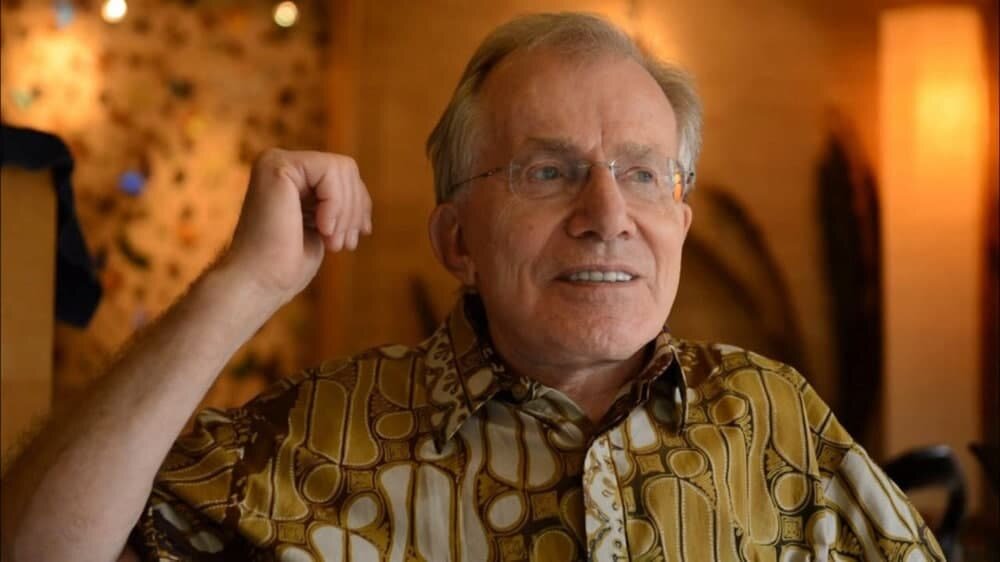TEHRAN - Alphonso Lingis, a professor emeritus of philosophy at Pennsylvania State University, says the inequality of wealth in America is increasing and greater than its developed counterparts.
“Inequality of wealth is greater by far in the United States than in any other developed country and increasing,” Lingis tells the Tehran Times.
“One percent of the population in the United States holds 42.5 percent of the national wealth. Just three men—Amazon founder Jeff Bezos, Microsoft founder Bill Gates, and investor Warren Buffett—hold combined fortunes worth more than the total wealth of the poorest half of Americans.”
Since wealth means political power in the United States, the gap between tycoons and ordinary people reflects a defect in the political system.
Critics say capitalism in the U.S. is going to marginalize democracy. Mass media plays a key role in this regard.
“As wealth becomes increasingly concentrated in an ever smaller number of individuals and corporations, so does the potential political power of the wealthiest,” Lingis notes.
Meanwhile “the median White family has 10 times more wealth than the median Black family and 7.5 times more wealth than the median Latino family. This increasing economic inequality is damaging to the health, education, job opportunities, and home ownerless possibilities of a growing number of people in the nation,” the professor of philosophy adds.
Following is the text of the interview:
Q: How do you see the political fallout of Trump's presidency in America and its impact on U.S. democracy?
A: Lawyers for President Trump identified 62 incidences of alleged voter fraud in the 2020 election, which the courts individually examined and rejected.
Nonetheless, Trump continues to claim that massive voter fraud invalidated the election, a claim shared by more than half of Republican voters. This does undermine public trust in the essential institutions of democracy in the country.
Q: U.S. officials claim to defend democratic values, but apparently giant corporations, lobbies, and money have a big influence on U.S. democracy. Is American democracy in favor of the majority or just a tool in the hands of the elites?
A: As wealth becomes increasingly concentrated in an ever-smaller number of individuals and corporations, so does the potential political power of the wealthiest. In 2020 candidates for the U.S. Congress spent $8,703,050,547 on their campaigns. Individual candidates spent up to $270 million on a campaign.
The greater part of the money spent was donated by a small number of very rich individuals and corporations. One-fifth of the money spent on campaigns was donated by just 2635 individuals. Their influence makes President Trump’s numerous actions against climate change control, environmental protection, and his massive tax reduction for the rich difficult to reverse.
Q: What is your comment on Republicans' efforts to restrict voting rights in some states? Do you think the American establishment can protect democracy?
A: Since the 2020 election, nine Republican-dominated states have passed new laws that restrict access to voting for poorer people and minorities. Seventeen states have passed laws to expand access to voting for their citizens. A national voting rights law is presently being blocked by Republicans in Congress.
Q: Is there any correlation between defending democracy at home and supporting democracy abroad? Apparently, the U.S. has failed to realize this goal in foreign policy. For example, America is a great sponsor of tyrannical regimes in the Persian Gulf.
A: President Trump openly admired authoritarian regimes, and leaders such as Bolsonaro in Brazil, Duterte in the Philippines, and Orban in Hungary copied Trump’s rhetoric and domestic policies.
President Biden, addressing the United Nations General Assembly, affirmed that his government will exercise “relentless diplomacy” in favor of democratic regimes. He called for international cooperation to address the coronavirus pandemic, global climate change, and cyber threats. He said the United States will double its financial commitment to climate aid and spend $10 billion to fight hunger.
He also announced a donation of 1.1 billion doses of the Covid vaccine to poor countries, “for everyone shot we’ve administered to date in America we have now committed to doing three shots to the rest of the world.”
Q: Some critics like Bernie Sanders believe that capitalism may push the U.S. and its democracy towards an abyss. What is your comment?
A: Inequality of wealth is greater by far in the United States than in any other developed country and increasing. One percent of the population in the United States holds 42.5 percent of the national wealth. Just three men—Amazon founder Jeff Bezos, Microsoft founder Bill Gates, and investor Warren Buffett—hold combined fortunes worth more than the total wealth of the poorest half of Americans.
The median White family has 10 times more wealth than the median Black family and 7.5 times more wealth than the median Latino family. This increasing economic inequality is damaging to the health, education, job opportunities, and home ownerless possibilities of a growing number of people in the nation.
In 2014, The World Economic Forum based in Davos, Switzerland released its “Global Risks 2014” report, listing income disparity first of the most likely five global risks, followed by extreme weather events, unemployment and underemployment, climate change, and cyber-attacks. Noted economist Thomas Piketty and others have argued that the growing economic inequality is also economically unsustainable.
TAGS


No comments:
Post a Comment